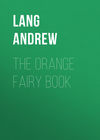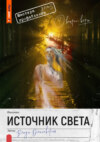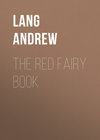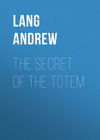Loe raamatut: «The Orange Fairy Book»
Preface
The children who read fairy books, or have fairy books read to them, do not read prefaces, and the parents, aunts, uncles, and cousins, who give fairy books to their daughters, nieces, and cousins, leave prefaces unread. For whom, then, are prefaces written? When an author publishes a book ‘out of his own head,’ he writes the preface for his own pleasure. After reading over his book in print – to make sure that all the ‘u’s’ are not printed as ‘n’s,’ and all the ‘n’s’ as ‘u’s’ in the proper names – then the author says, mildly, in his preface, what he thinks about his own book, and what he means it to prove – if he means it to prove anything – and why it is not a better book than it is. But, perhaps, nobody reads prefaces except other authors; and critics, who hope that they will find enough in the preface to enable them to do without reading any of the book.
This appears to be the philosophy of prefaces in general, and perhaps authors might be more daring and candid than they are with advantage, and write regular criticisms of their own books in their prefaces, for nobody can be so good a critic of himself as the author – if he has a sense of humour. If he has not, the less he says in his preface the better.
These Fairy Books, however, are not written by the Editor, as he has often explained, ‘out of his own head.’ The stories are taken from those told by grannies to grandchildren in many countries and in many languages – French, Italian, Spanish, Catalan, Gaelic, Icelandic, Cherokee, African, Indian, Australian, Slavonic, Eskimo, and what not. The stories are not literal, or word by word translations, but have been altered in many ways to make them suitable for children. Much has been left out in places, and the narrative has been broken up into conversations, the characters telling each other how matters stand, and speaking for themselves, as children, and some older people, prefer them to do. In many tales, fairly cruel and savage deeds are done, and these have been softened down as much as possible; though it is impossible, even if it were desirable, to conceal the circumstance that popular stories were never intended to be tracts and nothing else. Though they usually take the side of courage and kindness, and the virtues in general, the old story-tellers admire successful cunning as much as Homer does in the Odyssey. At least, if the cunning hero, human or animal, is the weaker, like Odysseus, Brer Rabbit, and many others, the story-teller sees little in intellect but superior cunning, by which tiny Jack gets the better of the giants. In the fairy tales of no country are ‘improper’ incidents common, which is to the credit of human nature, as they were obviously composed mainly for children. It is not difficult to get rid of this element when it does occur in popular tales.
The old puzzle remains a puzzle – why do the stories of the remotest people so closely resemble each other? Of course, in the immeasurable past, they have been carried about by conquering races, and learned by conquering races from vanquished peoples. Slaves carried far from home brought their stories with them into captivity. Wanderers, travellers, shipwrecked men, merchants, and wives stolen from alien tribes have diffused the stories; gipsies and Jews have passed them about; Roman soldiers of many different races, moved here and there about the Empire, have trafficked in them. From the remotest days men have been wanderers, and wherever they went their stories accompanied them. The slave trade might take a Greek to Persia, a Persian to Greece; an Egyptian woman to Phoenicia; a Babylonian to Egypt; a Scandinavian child might be carried with the amber from the Baltic to the Adriatic; or a Sidonian to Ophir, wherever Ophir may have been; while the Portuguese may have borne their tales to South Africa, or to Asia, and thence brought back other tales to Egypt. The stories wandered wherever the Buddhist missionaries went, and the earliest French voyageurs told them to the Red Indians. These facts help to account for the sameness of the stories everywhere; and the uniformity of human fancy in early societies must be the cause of many other resemblances.
In this volume there are stories from the natives of Rhodesia, collected by Mr. Fairbridge, who speaks the native language, and one is brought by Mr. Cripps from another part of Africa, Uganda. Three tales from the Punjaub were collected and translated by Major Campbell. Various savage tales, which needed a good deal of editing, are derived from the learned pages of the ‘Journal of the Anthropological Institute.’ With these exceptions, and ‘The Magic Book,’ translated by Mrs. Pedersen, from ‘Eventyr fra Jylland,’ by Mr. Ewald Tang Kristensen (Stories from Jutland), all the tales have been done, from various sources, by Mrs. Lang, who has modified, where it seemed desirable, all the narratives.
The Story of the Hero Makoma
From the Senna (Oral Tradition)
Once upon a time, at the town of Senna on the banks of the Zambesi, was born a child. He was not like other children, for he was very tall and strong; over his shoulder he carried a big sack, and in his hand an iron hammer. He could also speak like a grown man, but usually he was very silent.
One day his mother said to him: ‘My child, by what name shall we know you?’
And he answered: ‘Call all the head men of Senna here to the river’s bank.’ And his mother called the head men of the town, and when they had come he led them down to a deep black pool in the river where all the fierce crocodiles lived.
‘O great men!’ he said, while they all listened, ‘which of you will leap into the pool and overcome the crocodiles?’ But no one would come forward. So he turned and sprang into the water and disappeared.
The people held their breath, for they thought: ‘Surely the boy is bewitched and throws away his life, for the crocodiles will eat him!’ Then suddenly the ground trembled, and the pool, heaving and swirling, became red with blood, and presently the boy rising to the surface swam on shore.
But he was no longer just a boy! He was stronger than any man and very tall and handsome, so that the people shouted with gladness when they saw him.
‘Now, O my people!’ he cried, waving his hand, ‘you know my name – I am Makoma, “the Greater”; for have I not slain the crocodiles into the pool where none would venture?’
Then he said to his mother: ‘Rest gently, my mother, for I go to make a home for myself and become a hero.’ Then, entering his hut he took Nu-endo, his iron hammer, and throwing the sack over his shoulder, he went away.
Makoma crossed the Zambesi, and for many moons he wandered towards the north and west until he came to a very hilly country where, one day, he met a huge giant making mountains.
‘Greeting,’ shouted Makoma, ‘you are you?’
‘I am Chi-eswa-mapiri, who makes the mountains,’ answered the giant; ‘and who are you?’
‘I am Makoma, which signifies “greater,”’ answered he.
‘Greater than who?’ asked the giant.
‘Greater than you!’ answered Makoma.
The giant gave a roar and rushed upon him. Makoma said nothing, but swinging his great hammer, Nu-endo, he struck the giant upon the head.
He struck him so hard a blow that the giant shrank into quite a little man, who fell upon his knees saying: ‘You are indeed greater than I, O Makoma; take me with you to be your slave!’ So Makoma picked him up and dropped him into the sack that he carried upon his back.
He was greater than ever now, for all the giant’s strength had gone into him; and he resumed his journey, carrying his burden with as little difficulty as an eagle might carry a hare.
Before long he came to a country broken up with huge stones and immense clods of earth. Looking over one of the heaps he saw a giant wrapped in dust dragging out the very earth and hurling it in handfuls on either side of him.
‘Who are you,’ cried Makoma, ‘that pulls up the earth in this way?’
‘I am Chi-dubula-taka,’ said he, ‘and I am making the river-beds.’
‘Do you know who I am?’ said Makoma. ‘I am he that is called “greater”!’
‘Greater than who?’ thundered the giant.
‘Greater than you!’ answered Makoma.
With a shout, Chi-dubula-taka seized a great clod of earth and launched it at Makoma. But the hero had his sack held over his left arm and the stones and earth fell harmlessly upon it, and, tightly gripping his iron hammer, he rushed in and struck the giant to the ground. Chi-dubula-taka grovelled before him, all the while growing smaller and smaller; and when he had become a convenient size Makoma picked him up and put him into the sack beside Chi-eswa-mapiri.
He went on his way even greater than before, as all the river-maker’s power had become his; and at last he came to a forest of bao-babs and thorn trees. He was astonished at their size, for every one was full grown and larger than any trees he had ever seen, and close by he saw Chi-gwisa-miti, the giant who was planting the forest.
Chi-gwisa-miti was taller than either of his brothers, but Makoma was not afraid, and called out to him: ‘Who are you, O Big One?’
‘I,’ said the giant, ‘am Chi-gwisa-miti, and I am planting these bao-babs and thorns as food for my children the elephants.’
‘Leave off!’ shouted the hero, ‘for I am Makoma, and would like to exchange a blow with thee!’
The giant, plucking up a monster bao-bab by the roots, struck heavily at Makoma; but the hero sprang aside, and as the weapon sank deep into the soft earth, whirled Nu-endo the hammer round his head and felled the giant with one blow.
So terrible was the stroke that Chi-gwisa-miti shrivelled up as the other giants had done; and when he had got back his breath he begged Makoma to take him as his servant. ‘For,’ said he, ‘it is honourable to serve a man so great as thou.’
Makoma, after placing him in his sack, proceeded upon his journey, and travelling for many days he at last reached a country so barren and rocky that not a single living thing grew upon it – everywhere reigned grim desolation. And in the midst of this dead region he found a man eating fire.
‘What are you doing?’ demanded Makoma.
‘I am eating fire,’ answered the man, laughing; ‘and my name is Chi-idea-moto, for I am the flame-spirit, and can waste and destroy what I like.’
‘You are wrong,’ said Makoma; ‘for I am Makoma, who is “greater” than you – and you cannot destroy me!’
The fire-eater laughed again, and blew a flame at Makoma. But the hero sprang behind a rock – just in time, for the ground upon which he had been standing was turned to molten glass, like an overbaked pot, by the heat of the flame-spirit’s breath.
Then the hero flung his iron hammer at Chi-idea-moto, and, striking him, it knocked him helpless; so Makoma placed him in the sack, Woro-nowu, with the other great men that he had overcome.
And now, truly, Makoma was a very great hero; for he had the strength to make hills, the industry to lead rivers over dry wastes, foresight and wisdom in planting trees, and the power of producing fire when he wished.
Wandering on he arrived one day at a great plain, well watered and full of game; and in the very middle of it, close to a large river, was a grassy spot, very pleasant to make a home upon.
Makoma was so delighted with the little meadow that he sat down under a large tree and removing the sack from his shoulder, took out all the giants and set them before him. ‘My friends,’ said he, ‘I have travelled far and am weary. Is not this such a place as would suit a hero for his home? Let us then go, to-morrow, to bring in timber to make a kraal.’
So the next day Makoma and the giants set out to get poles to build the kraal, leaving only Chi-eswa-mapiri to look after the place and cook some venison which they had killed. In the evening, when they returned, they found the giant helpless and tied to a tree by one enormous hair!
‘How is it,’ said Makoma, astonished, ‘that we find you thus bound and helpless?’
‘O Chief,’ answered Chi-eswa-mapiri, ‘at mid-day a man came out of the river; he was of immense statue, and his grey moustaches were of such length that I could not see where they ended! He demanded of me “Who is thy master?” And I answered: “Makoma, the greatest of heroes.” Then the man seized me, and pulling a hair from his moustache, tied me to this tree – even as you see me.’
Makoma was very wroth, but he said nothing, and drawing his finger-nail across the hair (which was as thick and strong as palm rope) cut it, and set free the mountain-maker.
The three following days exactly the same thing happened, only each time with a different one of the party; and on the fourth day Makoma stayed in camp when the others went to cut poles, saying that he would see for himself what sort of man this was that lived in the river and whose moustaches were so long that they extended beyond men’s sight.
So when the giants had gone he swept and tidied the camp and put some venison on the fire to roast. At midday, when the sun was right overhead, he heard a rumbling noise from the river, and looking up he saw the head and shoulders of an enormous man emerging from it. And behold! right down the river-bed and up the river-bed, till they faded into the blue distance, stretched the giant’s grey moustaches!
‘Who are you?’ bellowed the giant, as soon as he was out of the water.
‘I am he that is called Makoma,’ answered the hero; ‘and, before I slay thee, tell me also what is thy name and what thou doest in the river?’
‘My name is Chin-debou Mau-giri,’ said the giant. ‘My home is in the river, for my moustache is the grey fever-mist that hangs above the water, and with which I bind all those that come unto me so that they die.’
‘You cannot bind me!’ shouted Makoma, rushing upon him and striking with his hammer. But the river giant was so slimy that the blow slid harmlessly off his green chest, and as Makoma stumbled and tried to regain his balance, the giant swung one of his long hairs around him and tripped him up.
For a moment Makoma was helpless, but remembering the power of the flame-spirit which had entered into him, he breathed a fiery breath upon the giant’s hair and cut himself free.
As Chin-debou Mau-giri leaned forward to seize him the hero flung his sack Woronowu over the giant’s slippery head, and gripping his iron hammer, struck him again; this time the blow alighted upon the dry sack and Chin-debou Mau-giri fell dead.
When the four giants returned at sunset with the poles, they rejoiced to find that Makoma had overcome the fever-spirit, and they feasted on the roast venison till far into the night; but in the morning, when they awoke, Makoma was already warming his hands to the fire, and his face was gloomy.
‘In the darkness of the night, O my friends,’ he said presently, ‘the white spirits of my fathers came upon me and spoke, saying: “Get thee hence, Makoma, for thou shalt have no rest until thou hast found and fought with Sakatirina, who had five heads, and is very great and strong; so take leave of thy friends, for thou must go alone.”’
Then the giants were very sad, and bewailed the loss of their hero; but Makoma comforted them, and gave back to each the gifts he had taken from them. Then bidding them ‘Farewell,’ he went on his way.
Makoma travelled far towards the west; over rough mountains and water-logged morasses, fording deep rivers, and tramping for days across dry deserts where most men would have died, until at length he arrived at a hut standing near some large peaks, and inside the hut were two beautiful women.
‘Greeting!’ said the hero. ‘Is this the country of Sakatirina of five heads, whom I am seeking?’
‘We greet you, O Great One!’ answered the women. ‘We are the wives of Sakatirina; your search is at an end, for there stands he whom you seek!’ And they pointed to what Makoma had thought were two tall mountain peaks. ‘Those are his legs,’ they said; ‘his body you cannot see, for it is hidden in the clouds.’
Makoma was astonished when he beheld how tall was the giant; but, nothing daunted, he went forward until he reached one of Sakatirina’s legs, which he struck heavily with Nu-endo. Nothing happened, so he hit again and then again until, presently, he heard a tired, far-away voice saying: ‘Who is it that scratches my feet?’
And Makoma shouted as loud as he could, answering: ‘It is I, Makoma, who is called “Greater”!’ And he listened, but there was no answer.
Then Makoma collected all the dead brushwood and trees that he could find, and making an enormous pile round the giant’s legs, set a light to it.
This time the giant spoke; his voice was very terrible, for it was the rumble of thunder in the clouds. ‘Who is it,’ he said, ‘making that fire smoulder around my feet?’
‘It is I, Makoma!’ shouted the hero. ‘And I have come from far away to see thee, O Sakatirina, for the spirits of my fathers bade me go seek and fight with thee, lest I should grow fat, and weary of myself.’
There was silence for a while, and then the giant spoke softly: ‘It is good, O Makoma!’ he said. ‘For I too have grown weary. There is no man so great as I, therefore I am all alone. Guard thyself!’ and bending suddenly he seized the hero in his hands and dashed him upon the ground. And lo! instead of death, Makoma had found life, for he sprang to his feet mightier in strength and stature than before, and rushing in he gripped the giant by the waist and wrestled with him.
Hour by hour they fought, and mountains rolled beneath their feet like pebbles in a flood; now Makoma would break away, and summoning up his strength, strike the giant with Nu-endo his iron hammer, and Sakatirina would pluck up the mountains and hurl them upon the hero, but neither one could slay the other. At last, upon the second day, they grappled so strongly that they could not break away; but their strength was failing, and, just as the sun was sinking, they fell together to the ground, insensible.
In the morning when they awoke, Mulimo the Great Spirit was standing by them; and he said: ‘O Makoma and Sakatirina! Ye are heroes so great that no man may come against you. Therefore ye will leave the world and take up your home with me in the clouds.’ And as he spake the heroes became invisible to the people of the Earth, and were no more seen among them.
The Magic Mirror
[Native Rhodesian Tale.]
From the Senna
A long, long while ago, before ever the White Men were seen in Senna, there lived a man called Gopani-Kufa.
One day, as he was out hunting, he came upon a strange sight. An enormous python had caught an antelope and coiled itself around it; the antelope, striking out in despair with its horns, had pinned the python’s neck to a tree, and so deeply had its horns sunk in the soft wood that neither creature could get away.
‘Help!’ cried the antelope, ‘for I was doing no harm, yet I have been caught, and would have been eaten, had I not defended myself.’
‘Help me,’ said the python, ‘for I am Insato, King of all the Reptiles, and will reward you well!’
Gopani-Kufa considered for a moment, then stabbing the antelope with his assegai, he set the python free.
‘I thank you,’ said the python; ‘come back here with the new moon, when I shall have eaten the antelope, and I will reward you as I promised.’
‘Yes,’ said the dying antelope, ‘he will reward you, and lo! your reward shall be your own undoing!’
Gopani-Kufa went back to his kraal, and with the new moon he returned again to the spot where he had saved the python.
Insato was lying upon the ground, still sleepy from the effects of his huge meal, and when he saw the man he thanked him again, and said: ‘Come with me now to Pita, which is my own country, and I will give you what you will of all my possessions.’
Gopani-Kufa at first was afraid, thinking of what the antelope had said, but finally he consented and followed Insato into the forest.
For several days they travelled, and at last they came to a hole leading deep into the earth. It was not very wide, but large enough to admit a man. ‘Hold on to my tail,’ said Insato, ‘and I will go down first, drawing you after me.’ The man did so, and Insato entered.
Down, down, down they went for days, all the while getting deeper and deeper into the earth, until at last the darkness ended and they dropped into a beautiful country; around them grew short green grass, on which browsed herds of cattle and sheep and goats. In the distance Gopani-Kufa saw a great collection of houses all square, built of stone and very tall, and their roofs were shining with gold and burnished iron.
Gopani-Kufa turned to Insato, but found, in the place of the python, a man, strong and handsome, with the great snake’s skin wrapped round him for covering; and on his arms and neck were rings of pure gold.
The man smiled. ‘I am Insato,’ said he, ‘but in my own country I take man’s shape – even as you see me – for this is Pita, the land over which I am king.’ He then took Gopani-Kufa by the hand and led him towards the town.
On the way they passed rivers in which men and women were bathing and fishing and boating; and farther on they came to gardens covered with heavy crops of rice and maize, and many other grains which Gopani-Kufa did not even know the name of. And as they passed, the people who were singing at their work in the fields, abandoned their labours and saluted Insato with delight, bringing also palm wine and green cocoanuts for refreshment, as to one returned from a long journey.
‘These are my children!’ said Insato, waving his hand towards the people. Gopani-Kufa was much astonished at all that he saw, but he said nothing. Presently they came to the town; everything here, too, was beautiful, and everything that a man might desire he could obtain. Even the grains of dust in the streets were of gold and silver.
Insato conducted Gopani-Kufa to the palace, and showing him his rooms, and the maidens who would wait upon him, told him that they would have a great feast that night, and on the morrow he might name his choice of the riches of Pita and it should be given him. Then he was away.
Now Gopani-Kufa had a wasp called Zengi-mizi. Zengi-mizi was not an ordinary wasp, for the spirit of the father of Gopani-Kufa had entered it, so that it was exceedingly wise. In times of doubt Gopani-Kufa always consulted the wasp as to what had better be done, so on this occasion he took it out of the little rush basket in which he carried it, saying: ‘Zengi-mizi, what gift shall I ask of Insato to-morrow when he would know the reward he shall bestow on me for saving his life?’
‘Biz-z-z,’ hummed Zengi-mizi, ‘ask him for Sipao the Mirror.’ And it flew back into its basket.
Gopani-Kufa was astonished at this answer; but knowing that the words of Zengi-mizi were true words, he determined to make the request. So that night they feasted, and on the morrow Insato came to Gopani-Kufa and, giving him greeting joyfully, he said:
‘Now, O my friend, name your choice amongst my possessions and you shall have it!’
‘O king!’ answered Gopani-Kufa, ‘out of all your possessions I will have the Mirror, Sipao.’
The king started. ‘O friend, Gopani-Kufa,’ he said, ‘ask anything but that! I did not think that you would request that which is most precious to me.’
‘Let me think over it again then, O king,’ said Gopani-Kufa, ‘and to-morrow I will let you know if I change my mind.’
But the king was still much troubled, fearing the loss of Sipao, for the mirror had magic powers, so that he who owned it had but to ask and his wish would be fulfilled; to it Insato owed all that he possessed.
As soon as the king left him, Gopani-Kufa again took Zengi-mizi, out of his basket. ‘Zengi-mizi,’ he said, ‘the king seems loth to grant my request for the Mirror – is there not some other thing of equal value for which I might ask?’
And the wasp answered: ‘There is nothing in the world, O Gopani-Kufa, which is of such value as this Mirror, for it is a Wishing Mirror, and accomplishes the desires of him who owns it. If the king hesitates, go to him the next day, and the day after, and in the end he will bestow the Mirror upon you, for you saved his life.’
And it was even so. For three days Gopani-Kufa returned the same answer to the king, and, at last, with tears in his eyes, Insato gave him the Mirror, which was of polished iron, saying: ‘Take Sipao, then, O Gopani-Kufa, and may thy wishes come true. Go back now to thine own country; Sipao will show you the way.’
Gopani-Kufa was greatly rejoiced, and, taking farewell of the king, said to the Mirror:
‘Sipao, Sipao, I wish to be back upon the Earth again!’
Instantly he found himself standing upon the upper earth; but, not knowing the spot, he said again to the Mirror:
‘Sipao, Sipao, I want the path to my own kraal!’
And behold! right before him lay the path!
When he arrived home he found his wife and daughter mourning for him, for they thought that he had been eaten by lions; but he comforted them, saying that while following a wounded antelope he had missed his way and had wandered for a long time before he had found the path again.
That night he asked Zengi-mizi, in whom sat the spirit of his father, what he had better ask Sipao for next?
‘Biz-z-z,’ said the wasp, ‘would you not like to be as great a chief as Insato?’
And Gopani-Kufa smiled, and took the Mirror and said to it:
‘Sipao, Sipao, I want a town as great as that of Insato, the King of Pita; and I wish to be chief over it!’
Then all along the banks of the Zambesi river, which flowed near by, sprang up streets of stone buildings, and their roofs shone with gold and burnished iron like those in Pita; and in the streets men and women were walking, and young boys were driving out the sheep and cattle to pasture; and from the river came shouts and laughter from the young men and maidens who had launched their canoes and were fishing. And when the people of the new town beheld Gopani-Kufa they rejoiced greatly and hailed him as chief.
Gopani-Kufa was now as powerful as Insato the King of the Reptiles had been, and he and his family moved into the palace that stood high above the other buildings right in the middle of the town. His wife was too astonished at all these wonders to ask any questions, but his daughter Shasasa kept begging him to tell her how he had suddenly become so great; so at last he revealed the whole secret, and even entrusted Sipao the Mirror to her care, saying:
‘It will be safer with you, my daughter, for you dwell apart; whereas men come to consult me on affairs of state, and the Mirror might be stolen.’
Then Shasasa took the Magic Mirror and hid it beneath her pillow, and after that for many years Gopani-Kufa ruled his people both well and wisely, so that all men loved him, and never once did he need to ask Sipao to grant him a wish.
Now it happened that, after many years, when the hair of Gopani-Kufa was turning grey with age, there came white men to that country. Up the Zambesi they came, and they fought long and fiercely with Gopani-Kufa; but, because of the power of the Magic Mirror, he beat them, and they fled to the sea-coast. Chief among them was one Rei, a man of much cunning, who sought to discover whence sprang Gopani-Kufa’s power. So one day he called to him a trusty servant named Butou, and said: ‘Go you to the town and find out for me what is the secret of its greatness.’
And Butou, dressing himself in rags, set out, and when he came to Gopani-Kufa’s town he asked for the chief; and the people took him into the presence of Gopani-Kufa. When the white man saw him he humbled himself, and said: ‘O Chief! take pity on me, for I have no home! When Rei marched against you I alone stood apart, for I knew that all the strength of the Zambesi lay in your hands, and because I would not fight against you he turned me forth into the forest to starve!’
And Gopani-Kufa believed the white man’s story, and he took him in and feasted him, and gave him a house.
In this way the end came. For the heart of Shasasa, the daughter of Gopani-Kufa, went forth to Butou the traitor, and from her he learnt the secret of the Magic Mirror. One night, when all the town slept, he felt beneath her pillow and, finding the Mirror, he stole it and fled back with it to Rei, the chief of the white men.
So it befell that, one day, as Gopani-Kufa was gazing up at the river from a window of the palace he again saw the war-canoes of the white men; and at the sight his spirit misgave him.
‘Shasasa! my daughter!’ he cried wildly, ‘go fetch me the mirror, for the white men are at hand.’
‘Woe is me, my father!’ she sobbed. ‘The Mirror is gone! For I loved Butou the traitor, and he has stolen Sipao from me!’
Then Gopani-Kufa calmed himself, and drew out Zengi-mizi from its rush basket.
‘O spirit of my father!’ he said, ‘what now shall I do?’
‘O Gopani-Kufa!’ hummed the wasp, ‘there is nothing now that can be done, for the words of the antelope which you slew are being fulfilled.’
‘Alas! I am an old man – I had forgotten!’ cried the chief. ‘The words of the antelope were true words – my reward shall be my undoing – they are being fulfilled!’
Then the white men fell upon the people of Gopani-Kufa and slew them together with the chief and his daughter Shasasa; and since then all the power of the Earth has rested in the hands of the white men, for they have in their possession Sipao, the Magic Mirror.













![XXXII Ballades in Blue China [1885]](https://cdn.litres.ru/pub/c/cover_100/25230660.jpg)






